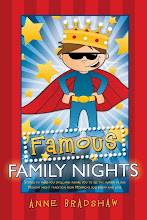by Rebecca Talley
I took my daughter to the DMV to take her driving test yesterday. Upon our arrival, the lady at the counter snapped, "Do you realize you are 20 minutes late?"
We both answered, "Yep." (My son was recently married and this last weekend we had the open house as well as a house full of guests. I'm a little exhausted and we live 30 minutes from town).
She then proceeded to tell us that my daughter would have to wait because she was late and the other appointment had shown up early and they were going to take him first to do his test. This was fine since we were late, but her 'tude was rather annoying and, truthfully, every time I go to the DMV, I not only wait forever, but deal with crabby women. I've come to the conclusion that in order to work at the DMV you must be crabby (as well as make snide remarks) as that is part of the job description.
As I sat there waiting and waiting and waiting, I realized what a golden opportunity I had to not only glean personality characteristics from this woman to use in my writing, but to also analyze how it made me feel. Sometimes, I'm so caught up in what's going on, I fail to realize how a situation can help me in my writing endeavors. The more observant we are, the better our stories will be. And the more we can pinpoint and understand our own feelings and apply them to our characters, the more realistic those characters will be to our readers.
Eliciting emotion from our readers comes from experiencing emotions ourselves and then capturing them on the page--perhaps that is why writers tend to be so passionate. No experience in life is wasted if we can then use it in our writing. Did someone hurt your feelings? Make you mad? Insult you? Accuse you? Compliment you? Ask you for help? Tell you a secret? In each of those situations, how did it make you feel?
When we can apply our feelings to our characters, we can make them more complex and more realistic. Flat characters don't experience emotion and they don't jump off the page. Characters who experience genuine emotions throughout the pages of a book grab readers and make readers think about them long after they turn the last page.
So, the next time you're sitting at the DMV observing cranky employees, defending your religious and/or political beliefs to a neighbor, or dealing with a rude customer service representative on the phone, pay attention to not only the details of what's happening, but especially how it makes you feel and then apply those feelings to your characters to make them come alive on the page.
Monday, October 19, 2009
Applying Emotions to Our Characters
Posted by Rebecca Talley at 6:19 PM
Labels: characterization, emotions, Rebecca Talley
Subscribe to:
Post Comments (Atom)

















4 comments:
Rebecca,
Too true! The things we go through to get material. I look forward to the DMV character in your next novel. I was once going through the drive-up window to get some dinner. My son had made me laugh and so I was still laughing as I tried to place my order. Suddenly this stern parental voice came over the intercome. "I'll be back when you are ready to get serious." So I said to Scott, did the McDonald's order taker just put me in time out?" And so I'd get serious and try to place the order, but the more stern and serious she got, the more it made me laugh.
The good news is that when you put these kind of scenes in your books, your characters can have the snappy comeback you didn't think of in time.
Great idea! I always love being able to change difficult situations into productive, positive moments.
That's so true, and it's one of my favorite things about writing.
Ha ha! So true about the DMV! That made me laugh.
Post a Comment